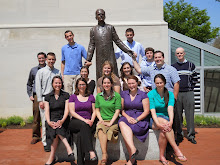Monday, January 5, 2015
Is it easier to be forgiven for murder than for divorce?
A colleague was once asked
to comment on the following statement: it is easier for a man to kill
someone and return to the sacraments than for a man to divorce,
remarry and return to the sacraments. After all, a murderer need only
go to confession to be readmitted into full communion, while a
divorced and remarried person must go through a lengthy annulment
process. Why does the Church punish those who make the simple mistake
of marrying the wrong person?
There is of course a flaw
already in the question. We forget that marriage is a sacrament, and
putting its existence into question, therefore, is very serious
business. Whereas sin—even mortal—has the remedy of the
confessional and the sacrament that occurs therein, the existence of
which we don't normally question, marriage and divorce have
sacramental consequences, which touch on the Church's very nature as
Church. Why has she recognized marriage as a
sacrament?
As a canonist, I don't deal
with sin, but with the sacraments. The Church (on instruction from
Christ—see Mt 19:4-9), sees marriage for what it is: oriented
towards the good of the spouses in its openness to ward children (and
their education), faithfulness, and perpetuity. Interestingly, these
characteristics and elements have up to this point in human history
existed in most natural marriages as well—pointing toward marriage
being true to human nature, not just something tacked on. But there
is something supernatural about marriage as well, which is why the
Church has elevated it to the level of sacrament between two baptized spouses.
Of course there is also the
matter of free will; the sacrament doesn't just happen to two people
without their prerogative. Broadly speaking, free will is what allows
man to do what is right, and do that, hopefully, within an
understanding of the Church and her teachings. Every choice has an
effect; we always live with those effects. With regards to marriage,
the spouses should receive good formation and marriage prep; this is
unfortunately not always the case, which is one of the many reasons
the annulment process exists.
 |
| scottmontreal's "Confessional #6, Basilica di Santa Maria Maggiore, Roma" is licensed under CC 2.0. |
The starting point of every
trial, is, so to speak, that a marriage is innocent until proven
guilty, or canonically put, that the Church presumes every marriage
valid until proven otherwise. The persons of the couple are not on
trial, but the marriage is—this is why the marriage itself gets a
lawyer, what is called the defender of the
bond. The trial is not about the current desires or emotions of the
parties, but the reality of the marriage: were the vows made with
full consent and free will? Did each of the persons have a simple
understanding of marriage (i.e., those characteristics listed above)?
Were there lies, deception, and/or fraud involved? The list goes on.
There really are no simple
mistakes when it comes to marriage, as its sacramental consequences
reverberates in the lives not just of the couple, but also of the
Church herself—this is why she takes each case so seriously and
defends the bond with such vigor. The heart of both unity and free
will is at stake here.
St. Paul warns his brethren
to receive the Eucharist worthily; this warning is echoed for
marriage. Marriage requires serious discernment of the parties; the
sacrament is a lifelong commitment that begins with a vow—a handing
oneself over wholly, body and soul, to another person. A murderer has
committed a sin—a very grave one at that—but he has not put the
existence of a sacrament into question. This is what applying for an
annulment does, which is one way the Church demonstrates her justice ad mercy. She safeguards the bond
which no man can sunder.
Subscribe to:
Post Comments
(
Atom
)
















No comments :
Post a Comment
We would love to hear from you! Please keep comments respectful and relevant to the topic at hand.